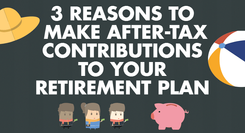Related Posts
Employers and Organizations
Why Employees Disengage From Wellness Programs
Last Update: December 7, 2015
Why Employees Disengage From Wellness Programs
Wellness Programs are designed with employees in mind--they target health issues, mental wellness, and make resources available to employees with the hope of improving quality of life. Employers seek to help workers live happier, healthier lives so as to increase productivity, reduce absenteeism and create a company culture that retains and attracts new talent.
However, a recent survey by Towers Watson & Co. and the National Business Group on Health conducted in 2014 found that nearly half of employees questioned did not participate in any wellness program offered by their employer. This includes incentive programs which include paying employees money to participate in health and wellness initiatives. As Shelly Wolff--health management consultant at Towers Watson--puts it, “40% of employees didn't receive any of the incentives at all. They completely opted out of the programs.”
5 Strategies to Help Increase Financial Wellness Program Participation
Give the people what they want and need
In 2014, MetLife conducted a study where they found that 49% of employees had no access to financial education programs through work, yet they were interested in having them. Financial pressures place strain on marriages, delay major purchases and stagnate the overall economy. While a focus on Health initiatives definitely has its place, focusing on the top causes of stress can help reduce the costs of stress-related health issues including high blood pressure and weight gain.
When Wellness programs align with employee wants and needs, employers can expect increases in rates of participation.
At the center of Financial Wellness is behavior change. Often times in an effort to deliver a financial education, products and service providers can overwhelm learners with the amount of information they are putting out. While all aspects of financial literacy and education are important, the reality is that learners want to take information that is immediately applicable to their own lives and begin making a difference.
Employees in different stages of their lives, from diverse cultural backgrounds and relationships with money have needs that are unique to their demographic. An employee focusing on retirement in the next 10 years has goals very different from a young family establishing college funds for their children.
The Enrich Platform gives employers the freedom to deliver a Financial Education Program that is unique to individual needs and maximizes the amount of information that can be translated into daily life.
Enrich not only allows employers to provide a financial education for their employees, but also provides a space where employers can elaborate on the types of benefits available to employees and educate them on how they work. Beyond money management and budgetary concerns, employees can get a feel for more long-term financial tools such as insurance, retirement and investments--all the things that translate into money.
Once each education program is designed, employees will be able to track their progress, acknowledge strengths and identify deficits.
Featured Posts

Employers and Organizations
3 MIN
10 Simple Ways Benefits Managers Can Recession-Proof Their Employee Benefits Package

Employers and Organizations
3 MIN
3 Reasons to Make After-Tax Contributions to Your Retirement Plan

Employers and Organizations
4 MIN
Financial Information vs Employee Behavior Change: Which Is More Important for Your Company’s Financial Wellness Program?

Employers and Organizations
3 MIN
Does Your Employee Financial Wellness Program Take Mindset Into Consideration?
Related Posts

Employers and Organizations
5 MIN
Providing Incentives for Your Employee Financial Wellness Program

Employers and Organizations
4 MIN
5 Strategies to Increase Financial Wellness Program Participation

Employers and Organizations
6 MIN
Do THIS to Increase Employee Engagement in Financial Wellness Programs
